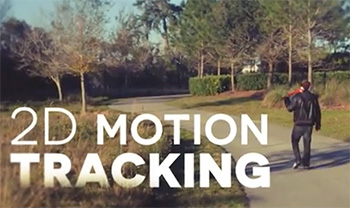Tip #1235: 6 Ways to Motion Track in After Effects
… for Visual Effects
Tip #1235: 6 Ways to Motion Track in After Effects
Larry Jordan – LarryJordan.com
Motion tracking is an essential skill, especially designed for moving elements.


This article, written by Johnathan Paul, first appeared in SchoolofMotion.com. This is a summary.
Motion tracking, in its simplest form, is the process of tracking the movement of an object within a piece of footage. Once you’ve collected this track data from the selected point, you then apply it to another element or object. The results of applying this data are that your element or object now matches the movement of your footage.
What can you use motion tracking for?
- Stabilize motion by utilizing tracking data.
- Add elements such as text or solids to a composition.
- Insert 3D objects into 2D footage.
- Apply effects or color grading techniques.
- Replace screens on a TV, Computer, or mobile device.
What types of motion tracking is there in After Effects?
- Single-Point Tracking
- Two-Point Tracking
- Corner Pin Tracking
- Planar Tracking
- Spline Tracking
- 3D Camera Tracking
Tracking is a crucial technique to learn as a motion designer or visual effects artist. You’ll end up using this technique much more than you think, and for a wide variety of reasons.
The article has videos that illustrate each of the six types of motion tracking, along with different software to accomplish it.


Leave a Reply
Want to join the discussion?Feel free to contribute!